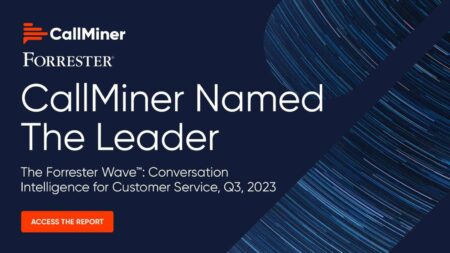 According to Forrester, CIOs and technology leaders guiding their firms through the challenges of the 2020s must enable technology-driven innovation and deliver on the goal of customer obsession if they hope to compete in a post-pandemic marketplace.
According to Forrester, CIOs and technology leaders guiding their firms through the challenges of the 2020s must enable technology-driven innovation and deliver on the goal of customer obsession if they hope to compete in a post-pandemic marketplace.
New research shows those who apply what the company describes as future-fit technology strategies grow 2.7 times faster than their competitors.
Forrester defines its future-fit technology strategy as “a customer-obsessed approach to technology that enables a company to quickly reconfigure business structures and capabilities to meet future customer and employee needs with adaptivity, creativity and resilience”.
Forrester believes that dealing with lagging tech strategies in a world that is beset with change requires CIOs, chief technology officers and chief data officers to re-imagine their approach to tech.
Rigorous analysis, based on quantitative consumer and employee survey responses as well as qualitative analysis from interviews with many tech leaders has resulted in two new reports which now definitively show the value of a future-fit technology strategy.
Quantifying the benefits of customer obsession
In the first of two new reports, Future-Fit Firms Outpace the Competition, Forrester drills more deeply into how being adaptive, creative and resilient can contribute to a company’s overall performance.
The report shows that while even the average respondent showing a high level of customer-obsession grew 1.6 times faster than the industry average, leading-edge respondents were growing at 2.7 times the industry-average rate. What’s more, a group of 10 standout respondents that exhibited perfect scores in the survey showed growth of an impressive 4.2 times the industry average.
Qualities that give an additional edge
A second research report, The 10 Core Competencies You Need to be Future Fit, examines the competencies that are required to further differentiate leading-edge performers from contenders. Forrester defines the benefits as follows:
The benefits of adaptability
According to Forrester, firms that have a flexible technology foundation and an ability to quickly respond to change are able to move beyond agility with adaptive talent management and an open culture.
Companies in the study that showed themselves to be able to proactively reconfigure themselves to get or stay ahead also exhibited five competencies that resulted in higher revenues:
- They supported major business strategy changes with technology architecture;
- They have a culture that embraces constant change;
- They partner with start-ups to bring disruptive innovations to market;
- They experiment with new technologies to discover new business opportunities ; and
- They adopt a fail fast approach.
The benefits of creativity
The report notes that too many companies get stuck in applying the same tech solution to each new customer problem. Those firms which outperformed their competitors in the survey reported that they tapped into their creativity to find ways to meet both their staff and customer needs at the most relevant points of engagement.
Forrester believes that creatively deploying technology to break the digital sameness is critical. The firms that excelled in the survey showed two key creative competencies:
- They promoted creativity throughout the organisation; and
- They Increased the time set aside for employees to innovate.
The benefits of resilience
The Covid-19 pandemic has been the biggest test of business resilience in many decades. Forrester describes resilient companies as those that identify and mitigate risks, invest in continuity, build flexible response capabilities as well as building business and technology processes with dependability at their core.
Forrester says resilient companies deliver on vision and brand promise, no matter the crisis. According to their findings, companies showed the strongest correlation between resilience and revenue growth when:
- They identified business continuity risks;
- They used technology to help prepare for and respond to change; and
- They promoted resiliency throughout the firm.
To help CIOs assess their preparedness, Forrester has developed an online Future-Fit Assessment. This 10-minute survey will help IT leaders learn their future-fit score.
For the past decade, Forrester has been delivering deep insights into how people interact with technology, how their behaviours and expectations change, and how companies should respond. Our Technographics data, based on rolling, annual, global demand-side (not supplier-led) research surveys, provides a wealth of information on which business leaders can rely for dependable, forward-looking advice.
Those looking for more information on how to build customer-obsessed, future-fit technology strategies should contact Joan Osterloh, Forrester’s authorised research partner for South Africa.
- This promoted content was paid for by the party concerned




